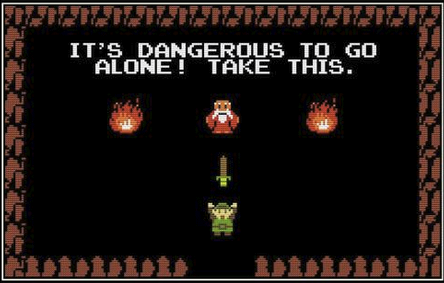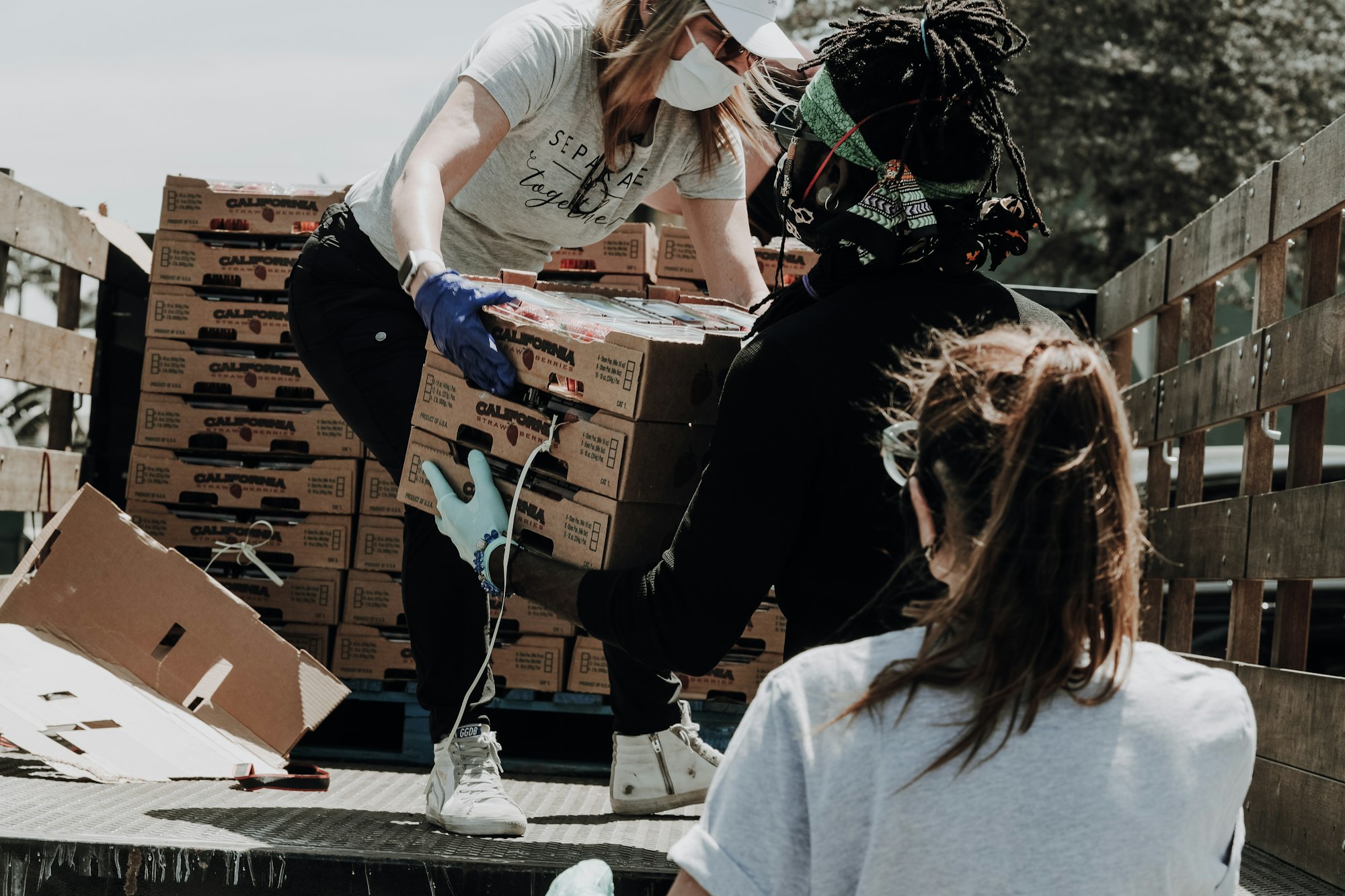
Seeing it saves us from despair.
"To be hopeful in bad times is not just foolishly romantic. It is based on the fact that human history is a history not only of cruelty, but also of compassion, sacrifice, courage, kindness." —Howard Zinn
Why don't we know more about Cinderella's fairy godmother? We don't even know her name.
It's strange. Here's a supernatural being that has, for reasons and time unknown, kept watch over a poor, mistreated stepdaughter. And despite all of her power, Whats-Her-Name never intervenes until she can come to Cinderella's rescue just before the ball. What exactly is going on here?
Or what about the old man who helps Link in the classic Nintendo game, The Legend of Zelda? "It's dangerous to go alone," he tells the unarmed boy. And then he hands him a sword. "Take this." Why in the world is this unnamed senior citizen living in a cave and handing out weapons to minors?

Most people haven't the faintest idea of where Yoda came from, or why he's a Jedi Master. When he first appeared on movie screens in 1980, audiences just accepted the strange little alien, as-is.
I could go on.
In every version of the Monomyth—Joseph Campbell's distillation of the Hero's Journey—there is always (always!) a helper. The protagonist finds themselves alone, stretched beyond their capacity. They've left the comforts of home to undertake a great quest, only to end up out of options, strength, and faith. All hope is lost, darkness closes in…and then comes the helper.
We're all so familiar with this moment of the story that it comes to us as second-nature. As tense as those moments are, we don't give up even when the hero does. "Help is coming!" our hearts cry out. Sometimes it's the mysterious, Fairy Godmother getting Cinderella to the ball. Or it might instead be the faithful friend, like Samwise Gamgee carrying Frodo Baggins to the top of Mount Doom. Or the dying Uncle Ben giving Peter Parker the jewel of wisdom that he needs to become Spider-Man.
The helper is so common that we take them for granted. This is why you've never puzzled at the fairy godmother or wondered why Yoda is a Jedi Master. Whoever the helper might be, we're sure that in the darkest of moments Help Is Coming.
But why are we so sure?

Perhaps this confidence naturally comes from the fact that every story we're told sets this expectation. The tales drill it into us. We have no reason to expect anything else.
But why do we believe the stories? I think it's because of experience. I think we have intuitively learned that help is everywhere.
This may be a hard idea to accept with a world drenched in suffering. Every day:
- Someone innocent dies at the hands of an angry man who will escape justice.
- Cancer patients give up their last breath because no cure arrived in time.
- People are robbed, and there's no Spider-Man to protect them.
With all these times that it didn't come, how can we still believe that Help Is Coming? It's because help is everywhere.
Help is common all over the world.
Just like suffering, helping is universal to the human experience. Despite all the evil in the world, consider:
- Most of us never have to stare down a murderer, because we're surrounded by people we can trust.
- Most cancer patients—two of every three!—survive the disease and live long, happy lives thanks to miracle cures developed by brilliant people.
- You have a minuscule chance of being robbed in a given day, thanks to a whole host of public services that drive crime rates down.
We so naturally fix our gaze on suffering that we miss the reality that help is everywhere.
Here in the US in 2020, around 83 million Americans each volunteered an average of 52 hours to a local nonprofit. Americans also donated over $471 billion to charity that year. This was all, by the way, in the midst of the global pandemic.
Helping is a global phenomenon. According to a UN estimate, the amount of volunteer helping that happens around the world is roughly equivalent to 109 million full-time workers. If volunteer helpers were a country, they would be the fifth largest workforce in the world.

Help is everywhere. Or in other words, we are all helpers.
For example, it is almost certainly the case that someone counts on you regularly. Your family members trust that you'll be there when they need you. Friends call you to spend time with them. Even strangers that stopped you to ask directions knew that someone would point them in the right direction.
This kind of daily, mundane help is like sunshine that makes a healthy society grow. We open the door for a stranger, put in a good word for a job applicant, and console a friend in a breakup. You've probably been helped in moments like these. But it's important to remember that you've also been the helper.
In other words—to one degree or another—you've been someone’s fairy godmother.
We can give even more and even better help.
Imagine a world without help, where none of us could be counted on. One where help isn't ever coming. Help is the only thing keeping worse things at bay.
All of this is to say: helping each other is the only way out of what's terrible in the world, and the only way of protecting what's good. And because we do live in a world still mired in too much suffering, it’s clear that we need more help.
So a critical question remains: How do we become better helpers?
The articles to appear over the coming months will be answering this question. I hope you'll find them helpful.
Things to Read, Watch, or Hear
Read/Hear: Consequential Strangers
While those closest to our heart are synonymous with home, consequential strangers anchor us in the world and give us a sense of being plugged into something larger.
An exerpt from the book by Melinda Blau and Karen L. Fingerman. This will change the way you see the brief encounters you have with the people around you.
Watch: Motivation in Hard Times
Four minutes from author John Green sharing why love is the best motivator.
Hear: Giving It Away
In this episode of his podcast, People I (Mostly) Admire, economist/author Steven Leavitt interviews John Arnold, billionaire and co-founder of one of the most generous private foundations in the world. Arnold describes with clarity why it's hard to give away billions of dollars effectively and why he and his wife won't give up trying.
We @Arnold_Ventures fund research on gun violence so that if/when the political window for legislation opens, there's good evidence on which policies will decrease harms.
— John Arnold (@JohnArnoldFndtn) June 9, 2022
Promotional Stuff
Two exciting things to share:
- I have a new website! It's a cleaner, faster experience and I'm quite happy with it so far.
- Season 2 of the How to Help Podcast is launching on Monday evening. My first interview of this season is with Jonathan Reckford, CEO of Habitat for Humanity International. Jonathan is an amazingly thoughtful, kind, and interesting person with a fascinating career path. It's an episode about finding a home, for ourselves and for everyone. I hope you love it!